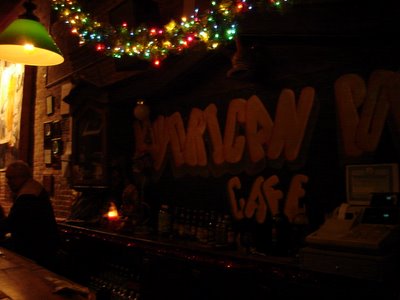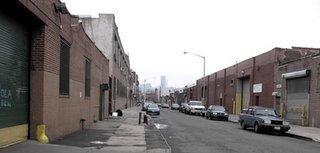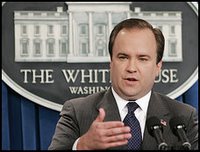m&m update:
Our trip is coming to a close. Since our last post, we've walked a lot. We've taken the bus, ridden in taxis, and hopped on the subway a LOT.
It's incredibly easy to get around in New York. Subways live up to their reputations. Ironic that density makes subways both possible and necessary.
We found the Triangle shirtwaist factory after some effort to discover the actual address. When the search wasn't looking good, Marjorie was ready to stand in the corner store of a nearby building and just feel that it was the one. Mikaela pushed for more historical accuracy.
Gabe consulted the silver box -- which we grew to grudgingly admire and which garnered our increasing reliance as the days went on. We found a cryptic address and after a few hair-raising minutes of searching, Gabe found the historical plaque. There were two, actually. One on one corner of the building commemorating the fire, one on the other commemorating the building itself, which was designed by a prominent New York architect at the time.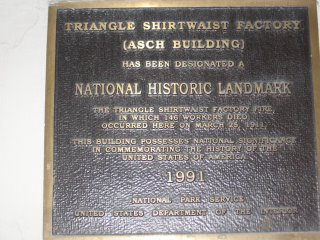

The building is now on the National Historic Register. Both plaques highlighted the importance of women in the labor movement, both before and after the fire. We took pictures and paid homage.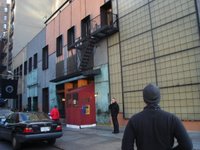
Then we continued our day of happily making Marjorie happy and went to an AMAZING vegetarian restaurant called Zen Palate.
"All in all it was a great day," Marjorie says. "I got to see the shirtwaist factory and eat in the best vegetarian restaurant in New York City. Then I got to spend the evening with a good old friend from East Texas who happens to be a labor guy. It doesn't get better than that."
It's been a good trip for reconnecting with old friends in general. Gabe (back and hat pictured above) has been a rock-star tour guide. With us for almost every step, he's been cruise director, question-answerer, transportation director, and major subsidizer of our shoe-string vacation. And the sweetest part of all is how much he seems to enjoy it. We were at an anglophile bar -- The Red Telephone (or something) -- and Gabe wanted a term for the people in your life -- sometimes ex's but not always -- who become family. Mikaela offered les etoiles -- the stars. Marjorie offered companeros. Gabe said, maybe they're just family. It's been great doing these walking tours in these neighborhoods we've always heard about. We walked through Harlem and saw posters of Che and major black civil rights leaders, which is the only area of town we've seen them on the street. We also saw a lot of disinvestment.
It's been great doing these walking tours in these neighborhoods we've always heard about. We walked through Harlem and saw posters of Che and major black civil rights leaders, which is the only area of town we've seen them on the street. We also saw a lot of disinvestment. 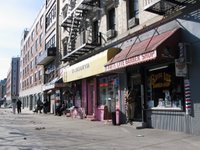
Despite that, Harlem lives. People on the street seemed busy and friendly. One man greeted us warmly from the doorway of a barbershop with Bob Marley playing loudly into the street.
Walking over the Brooklyn Bridge was a major milestone. "Walking over the fricking Brooklyn Bridge," Marjorie says in disbelief. We took about a million pictures over there.

We saw the New York Stock Exchange draped with the American flag in lights, a gigantic Christmas tree, and men with heavy military armor and weaponry guarding this bastion of capital freedom. The guy with the helmet, flak jacket, and AK-47 was especially reminiscent of our free society and made Mikaela's little patriotic heart flutter in defiance.
(Gabe laughs and says, "What did you say that was? That's not an AK-47. That would be a Russian soldier. I personally saw it as a true sign of freedom. And I would guess it was an M-16.")
The World Trade Center site, on the other hand, just blocks away, had a sign asking tourists not to buy or sell anything directly in front of the pit, out of respect for the dead. Flags lit and flying, a timeline of the event, and a history of the building's design and construction were prominently displayed.
Marjorie looked at the utter destruction and thought, "My feet hurt." No really, she says, she was impressed by the size of it but didn't really reflect a lot. "I didn't want to think about it, really. I did think about people jumping to their deaths."
Looking back, there is an eerie historical echo of the shirtwaist factory, but one seems to have served the purpose of rights and freedoms, while the other has led to multiple wars and more unbridled capitalist expansion of global empire. Hmmm.
Mikaela reflects, "Two seconds after leaving the World Trade Center site, we ducked into a nearby shop to try on sweaters and some boots. Ahh, America."
New York is so big that in a few short days, all you can really do is get a survey of the neighborhoods and get a general idea of what it's like. The next trip will have to be much more detailed and focused in on the things we want to know more about. Marjorie says one whole trip could be graveyards and churches. Mikaela says architecture could fill her days for a week.
Apparently, there's a book on Radical Walking Tours of New York City. That would be a trip in and of itself.
Here is a partial list of all the things we didn't get to see that would make our list next time:
- All the cool cemetaries
- Riker's island
- Astoria
- Walking around in the burroughs more and areas other than Manhattan
- Gabe adds the Sex museum
- The Empire State Builing
- The Statue of Liberty and Ellis Island
- The Staten Island Ferry
- The A Train
- More of Central Park, perhaps even going so far as to ice skate
- Central Station
- The New York City Museum
- Punkrock Karaoke at Arlene's Grocery
- Burlesque at Galapagos
- Pizza at Fornino's and John's (2 places, not a NY couple)
- Gabe adds, a tour of the NBC building
- The Guggenheim (We only went in the lobby. Too crowded! We'd been museumed out already, and Mikaela was put out that the famous exterior is under renovation and looks like CRAP.)
Gabe's List of Things Other People Should Not Miss in New York:
- Museum of the Moving Image
- Upright Citizens Brigade Theatre
- The Comedy Cellar
- The Blue Note, Village Vanguard, maybe Iridium
- Le Bernardin
- The North Six
- Paul Auster's house
- Coney Island
- Open mic at the Sidewalk Cafe
- Go back in time to see transvestites impersonating the stars at Bar d'Oh
- The Angelica
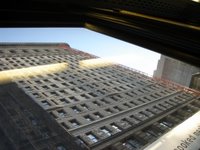
We did walk past the Apollo Theatre in Harlem. We spotted the Empire State Building on multiple occasions. I took a picture of the Flatiron Building from the 5th Avenue bus (pictured right) and saw the Chippendale building and the New York Public Library lions.

We went to a really cool burlesque -- not a cabaret -- in the East Village with women who were real women. And talented. And smart. And funny! Our hands-down favorite was the last dancer
 who performed to "I Want Candy" with little dots on white paper covering her breasts. She was one of two ladies who produce and mother the show. They rock! Gabe especially liked the woman who performed to the song from David Lynch's still photography show to music from the soundtrack to the Lost Highway. See? Smart and hot.
who performed to "I Want Candy" with little dots on white paper covering her breasts. She was one of two ladies who produce and mother the show. They rock! Gabe especially liked the woman who performed to the song from David Lynch's still photography show to music from the soundtrack to the Lost Highway. See? Smart and hot.Tonight is New Year's eve. We contemplated going to Times' Square, but they're estimating a million people, and to get anywhere close, you have to go and hang out starting at 6 pm. That's not going to happen. There's also a costume parade and midnight run at Central Park that looks fun, but we'll probably just toast and bring in the New Year at some bar. New Year in New York is good enough entertainment!
All in all, a great trip. We'll be home soon enough... (And then/now we'll [have] add [ed] pictures...way too slow from here, sorry! Good to leave it up to your imaginations, though!)



